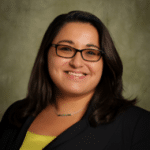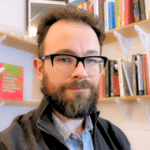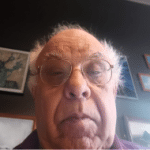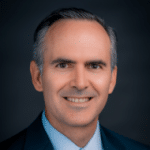Sociologists describe the meaning and value of their work. In the testimonials that follow, these scholars provide examples of the real-world impact of sociology and how their teaching, research, and public engagement work has made a positive difference in the world around them.
We are grateful to all the scholars who contributed their stories to the ASA’s Value of Sociology Initiative.
“I provided mental health services in the form of forensic psychotherapy to inmates in both a state prison and two county jails for 26 years, providing alcohol, ADHD, and schizophrenia interventions and using my social-psychological education to better serve these populations. I have also had significant impact as a social-psychologist/psychotherapist in the U.S. government by providing conflict resolution/trauma research that has benefited diverse government populations. …”
—Frank Salvatore Abate, Psychotherapist, Part-Time, Self-Employed
Read Frank’s full testimonial.

—Julie C. Abril, Independent Social Scientist, Julie C. Abril, Research Services
Read Julie’s full testimonial.
“Sociology as a discipline reaches more than just academia. My students have commented on how it is a window to the world they are about to enter. The discipline covers aspects of how students became who they are and how the world around them will impact their future. I often use the phrase, “Your views are your views, but the goal of the course is for…”
—Patrick Asmussen, Sociology Teacher, Ankeny Community Schools
Read Patrick’s full testimonial.

—Robin Bartram, Assistant Professor, University of Chicago
Read Robin’s full testimonial.
“Sociologist Heather Evans and I conducted research on racial inequities in the administration of capital punishment in Washington State. We submitted this research on behalf of defense attorneys representing a death row inmate. In 2018, the Washington State Supreme Court ruled 9-0 that the death penalty as administered in the state was racially disproportionate and arbitrary, and therefore unconstitutional. In the ruling, Chief Justice Mary…”
—Katherine Beckett, Professor, University of Washington
Read Katherine’s full testimonial.
Katherine Beckett and Heather Evans’s work was also highlighted by colleague Judith Howard in her testimonial. You can read it here.

—Stephanie Bohon, Professor and Head of Sociology, University of Tennessee
“The 1970s saw an explosive growth of self-help/mutual aid groups in which persons with a range of disabilities, and those with chronic diseases or other medical conditions, formed groups. People who identified as having similar problems banded together, sharing their lived experiences of frustration and marginalization as well as their constructive coping efforts. They often advocated for political and professional changes. Many based their structure…”
—Thomasina Borkman, Professor of Sociology Emerita, George Mason University
Read Thomasina’s full testimonial.

—Joslyn Brenton, Associate Professor, Ithaca College
Read Joslyn’s full testimonial.
Photo credit: Crystal Smith
“I have worked for 43 years for a Catholic social service agency as the director of evaluation. I have been responsible for evaluating children, family, and services for individuals with developmental disabilities. I have also been a commissioner and peer reviewer for Social Current/Council on Accreditation. I have reviewed 160 for-profit, nonprofit, and military after-school/family readiness programs and government organizations in 37 states and four…”
—Stanley Capela, VP for Quality Management and Corporate Compliance Officer, HeartShare Human Services, Retired
Read Stanley’s full testimonial.

—Wendie Choudary, Lecturer of Sociology, Binghamton University
Read Wendie’s full testimonial.
“I served as the chief of policy and planning under Boston Mayor Kim Janey in 2021, during the COVID-19 pandemic. I helped lead Mayor Janey’s equitable recovery for the city as we delivered vaccines, reopened schools, reopened businesses, and brought more than 10,000 city employees back to in-person work across the city.”
—Mary Churchill, Associate Dean and Professor of the Practice, Boston University

—Gemini Creason-Parker, PhD Student, Texas A&M University
Read Gemini’s full testimonial.
“My 2023 TEDx Talk, “Three Myths of Behavior Change: What You Think You Know That You Don’t,” has been viewed more than 1.3 million times and is being used in universities around the world, in several fields including sociology, business, and environmental science. In the 11 years since the talk was posted, I have been contacted by people from around the world who have applied the knowledge shared in…”
—Jeni Cross, Director of the Institute for Research in the Social Sciences and Professor of Sociology, Colorado State University
Read Jeni’s full testimonial.

—Mindy Fried, Principal, Arbor Consulting Partners
Read Mindy’s full testimonial.

—S Michael Gaddis, Senior Research Scientist, NWEA
Read S. Michael’s full testimonial.

—Michael Gibson-Light, Assistant Professor, Sociology and Criminology, University of Denver
Read Michael’s full testimonial.
“As a recently graduated sociology major with a minor in gerontology, I am beyond grateful to be applying the sociological lens within my career. As a family self-sufficiency coordinator for a nonprofit housing authority, I operate a program that assists residents with accessing resources, such as obtaining financial coaching, maintaining job retention, achieving homeownership, addressing food insecurity, or just assistance with life in general…”
—Anna Howard, Family Self-Sufficiency Coordinator, Affordable Housing Advocates
Read Anna’s full testimonial.
“Katherine Beckett, professor of sociology and chair and professor of law, societies, and justice, and Heather Evans, lecturer in the Department of Sociology and the Department of Law, Societies, and Justice, both at the University of Washington, are doing work that exemplifies how social and behavioral sciences can produce deeply important change in the world. Their research led the Washington State Supreme Court to strike down…”
—Judith A. Howard, Professor Emerita, University of Washington
Read Judith’s full testimonial.

—Jaime Kucinskas, Chair and Associate Professor of Sociology, Hamilton College
Read Jamie’s full testimonial.

—Lisa Lipscomb, Administrative Director, Delve Psychotherapy of Chicago
Read Lisa’s full testimonial.

—Shayna Morrison, PhD Student, Kent State University
Read Shayna’s full testimonial.

—Meghan O’Neil, Postdoctoral Scholar, The Ohio State University
Read Meghan’s full testimonial.

—Richard Petts, Professor of Sociology, Ball State University
Read Richard’s full testimonial.

—Jack Nusan Porter, Research Associate, The Davis Center for Russian Studies, Harvard University
Read Jack’s full testimonial.

—Claire Reardon, Doctoral Candidate, University of Kentucky
Read Claire’s full testimonial.

—Sal Restivo, Professor of Sociology, Science Studies, and Information (retired), Rensselaer Polytechnic Institute
Read Sal’s full testimonial.
“By teaching sociology in a Criminal Justice Studies department, I have been able to provide students with a critical analysis of how class and racial inequalities are reproduced by the criminal justice system, all without improving public safety. Furthermore, I’ve been able to share strategies that improve public safety, while improving public health and well-being. As working professionals and engaged citizens, students have used these…”
—César Rodríguez, Associate Professor, San Francisco State University
Read César’s full testimonial.
“My field is military sociology. For half a century, I have coupled my academic career (at the University of Michigan and University of Maryland) with research impacting military personnel and manpower policy. During the nation’s transition to an all-volunteer Army in 1973, I directed the sociology program at the Army Research Institute (ARI). In the 1980s and 1990s, while at the University of Maryland…”
—David Segal, Professor of Sociology and Distinguished Scholar-Teacher Emeritus, University of Maryland
Read David’s full testimonial.

—Peter Simi, Professor of Sociology, Chapman University
Read Peter’s full testimonial.

—Claus Tjaden, Co-founder/Consultant, Martinez Tjaden LLC
Read Claus’s full testimonial.

—Alex Turvy, PhD Student, Tulane University
Read Alex’s full testimonial.
“Communication is critical for optometrists to elicit the subjective experience of patients during an eye examination. In hearings conducted to assess optometrists’ fitness-to-practice, “poor communication” is often highlighted as a factor leading to complaints. Optometrists, therefore, are aware of the importance of communication to the efficacy of their relationships with patients, and professional organizations, such as the College of Optometrists in the UK, constantly work to enhance practitioners’ communication skills…”
—Dirk vom Lehn, Professor of Organization and Practice, King’s College London
Read Dirk’s full testimonial.

—Alison Wynn, Senior Research Scholar, VMware Women’s Leadership Innovation Lab at Stanford University
Read Alison’s full testimonial.

—Brett Zollinger, Sociology Professor and Chair and Docking Institute of Public Affairs Director, Fort Hays State University
Read Brett’s full testimonial.
